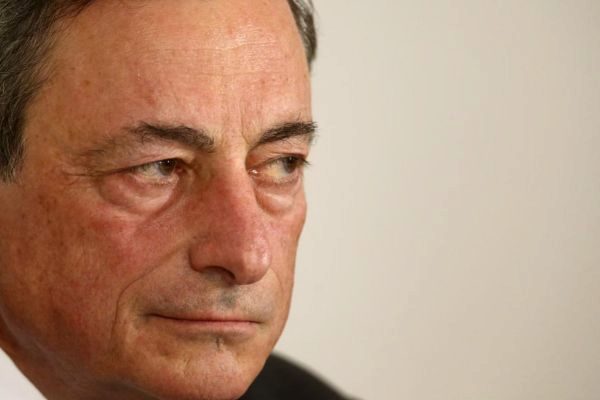The annual rate of inflation in the euro zone fell to 1% in July this year and is at the lowest level since 2016, according to data published by Eurostat. The fall in inflation would pave the way for a new stimulus policy by the European Central Bank (ECB), to which its president, Mario Draghi, already opened the door a few weeks ago.
Inflation has fallen again in the Eurozone. It has done three tenths compared to the previous month (1.03%) and more than one point since July 2018, when it stood at 2.2%. This decrease affects not only the euro zone but also the whole of the European Union, where it falls two tenths compared to the previous month (1.4%).
These data add to the already negative forecasts that Eurostat published last week, which confirmed a timid growth of the eurozone's GDP of only 0.2% in a context of contraction of the world economy that makes the single currency resent. With the objective of the ECB to maintain inflation at levels close to 2%, the pressure on the institution to start a new stimulus policy is growing.
After the last meeting of the ECB governing council last July, Mario Draghi, who will leave the presidency in October, pointed to the need to continue the institution's expansive policies. In particular, he warned precisely of the collapse of inflation and of the risks to the European economy that the global slowdown and the weakening of trade flows entail.
Already in June, several council members proposed to relaunch the ECB bond purchase policy, finalized in December. The fall in inflation increases the chances for such a decision in the coming weeks. "A significant degree of monetary stimulus is still necessary to ensure that financial conditions remain very favorable and support the expansion of the euro area," the president explained during the institution's monthly press conference last July. If the situation does not improve, Draghi warned, the ECB "will not hesitate to act."
During the last three years, and until December 2018, the ECB carried out a significant purchase of public bonds in the secondary market with the aim of stimulating growth and combating deflation. Although the policy helped maintain the inflation target at around 2%, it was not exempt from controversy, particularly in northern European countries.
A ruling of the EU Court of Justice, based in Luxembourg, supported the Draghi bond purchase program confirming that the ECB did not exceed its mandate but that this action fell within its powers in monetary policy. The attorney general, Melchior Wathelet , also ruled out previously that the program could be considered a direct aid to member states in financial difficulties, as claimed by their detractors. The Court also considered that this instrument was the only letter left in the bank's sleeve to fight deflation. A letter from Draghi could be used again in September.
According to the criteria of The Trust Project
Know more- Mario Draghi
- European Central Bank
- Europe
- GDP
- European Union
- TV
EconomyMore 'doping' from Frankfurt against the economic brake in Europe
Monetary policy The ECB maintains the rates but pays the ground to reactivate the stimuli in the Eurozone
Economy The interest of the Spanish ten-year bond marks historical lows

